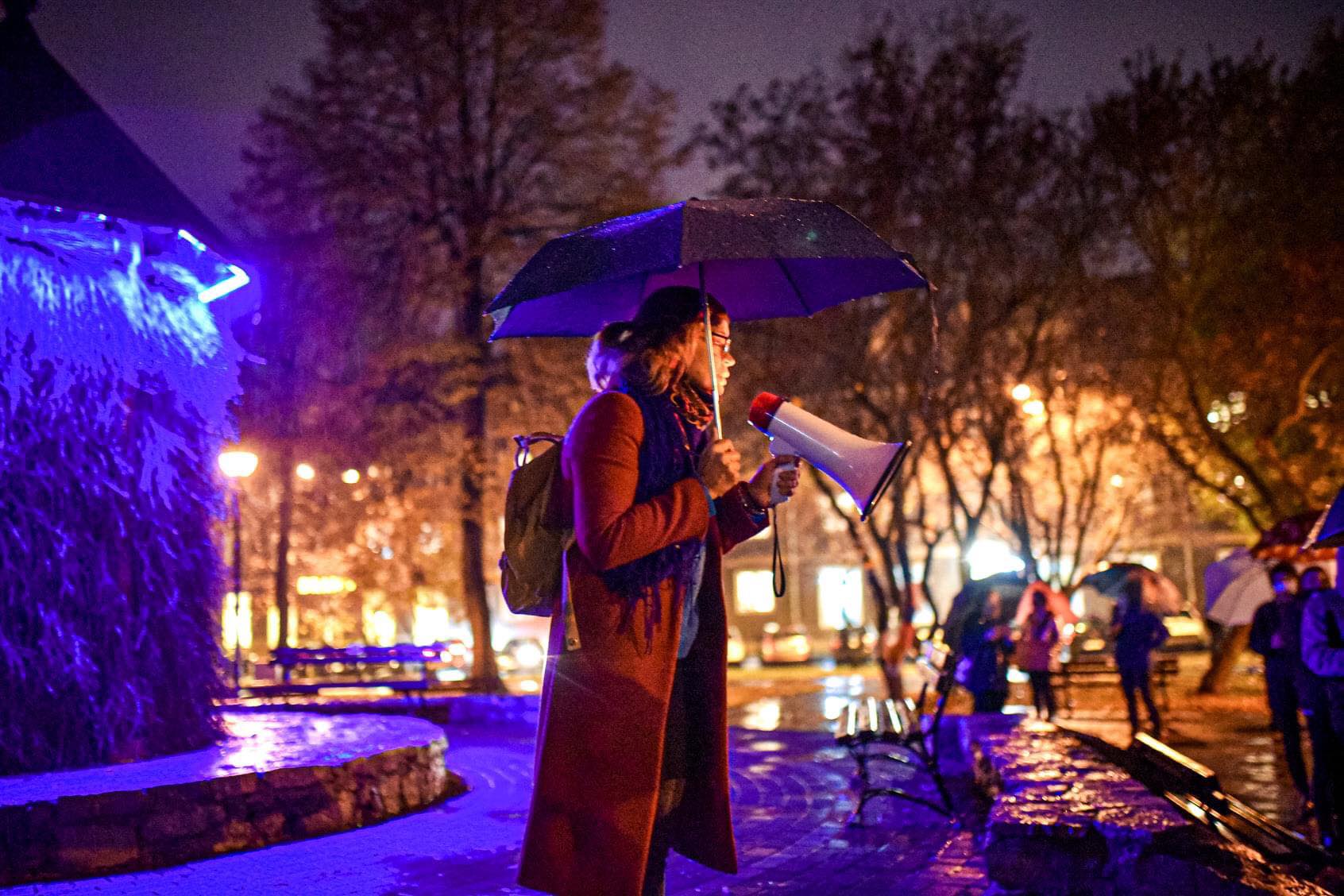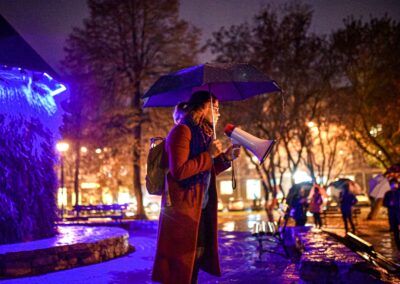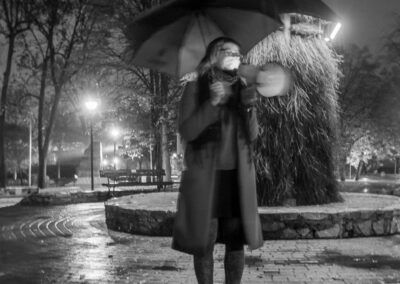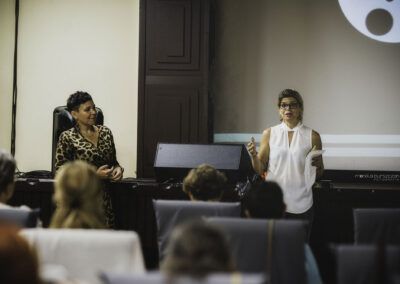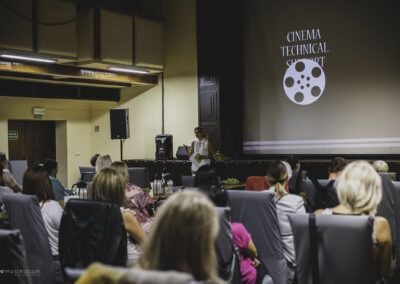At the beginning of the pandemic in April 2020, as the activist group Nic o nas bez nas, (nothing concerning us without us) Women’s Movement Gliwice, Pyskowice we organised a queue protest against the tightening of the abortion law. We stood in the centre of Gliwice in front of the Biedronka chain shop in masks, keeping our distance and holding signs saying: #women’s hell. Nothing could weaken our involvement, activism and the need to express our opposition.
It soon tourned out, however, that we had to transfer many of our activities online.
At first, we organised meetings of the Women’s Book Club (we have been active for several years, our meetings devoted to feminist literature are very popular) on the zoom platform. However, the specific character of those gatherings (with frequent transitions from literary disucssions to intimate conversations) made it increasingly difficult for us to function virtually. The meeteings lacked intimacy.
Nevertheless, the Women’s Book Club managed to organise several virtual events, including my author’s meeting accompanying the publication of Strong Women’s Herstories – in this case, the online formula enabled me to invite the protagonists of my book, even those from other parts of the world. It was incredibly moving.
Yes, we are human. We need relationships.
I remember the screening of the ‘Portrait of a Woman in Fire’ at the Pyskowice Women’s Cinema, organised in the middle of the pandemic. The discussion moved to the Internet, but we really missed those – sometimes heated – face-to-face exchanges of ideas, the smell of coffee, and the conversations moved outside the Pyskowice community centre to the car park.
For almost the entire pandemic I managed to run yoga classes but organising trips or workshops was much more difficult, which, unfortunately, affected my income.
On the other hand, more and more of my female clients were struggling with loneliness, lack of human contact and direct relationships. Women – confined to their homes, working online or caring for children alone. Over those two years, whenever the loosening of the restrictions allowed it, we came together and had very intense and “lively” meetings.
All these adversities, but also observations, made me think about expanding and strengthening my activities. Very quickly, I made the decision to study Gestalt psychotherapy.
In one of the first classes I heard a story about traumas locked in a jar (I told the story to every Women’s yoga group I met that week in Srocza Street).
In the first picture there are three jars, each containing a heavy lead ball. The balls represent our traumas, loss, difficulty. The jars are the same size and the balls in each jar get smaller and smaller.
This suggests that the situation will get better with time or that time will heal the wounds or it will just happen somehow. But it is not true. Time does not heal wounds at all. Or if it does, it heals only some and not completely. We cannot wait passively.
In the second picture there are still three jars. The balls in the jars are the same size, but this time each jar is larger.
We grow in strength. In relationships. In emotions. In activities.
We grow around traumas. New shoots are sprouting. Shoots of relationships and growth.
The confinement during the pandemic, the weakening of relationships, the social distance, the fears associated with it are undoubtedly the kind of trauma we experience as a community.
Can anything help us persevere?
Such things as rebuilding relationships, talking about difficulties, listening to others or talking definitely will. In the post-Covid reality, a new opportunity has opened up for me. Live meetings are back again, but their character has changed. In my activities, I increasingly use the psychotherapeutic knowledge I acquired at university.
The distance gets shorter. The relationships get denser. We keep growing!
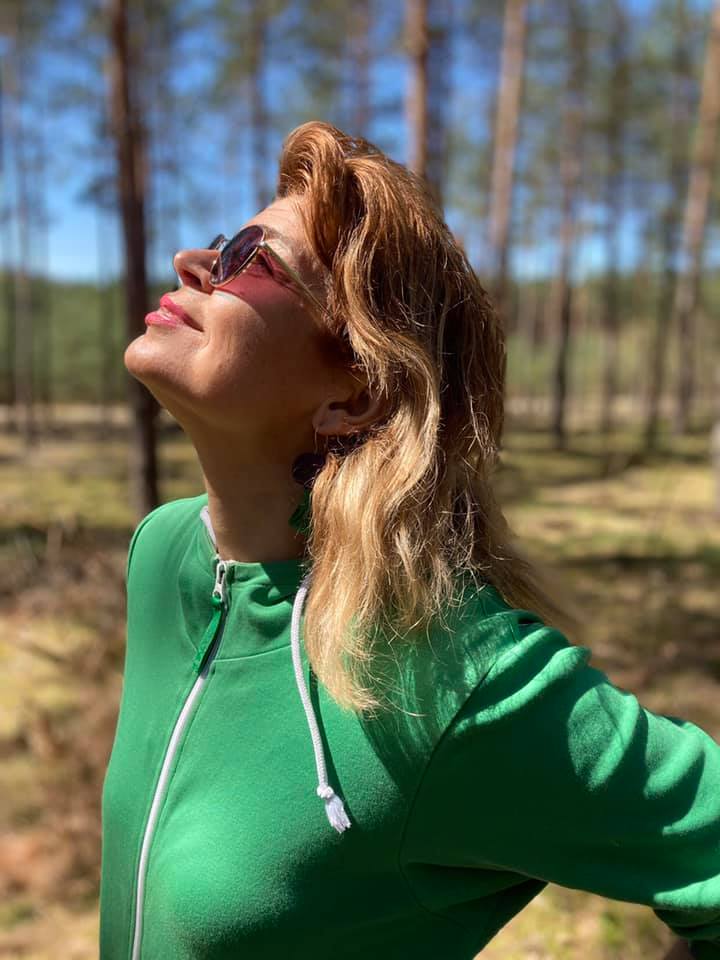
Katarzyna Szota-Eksner
She runs the Yogasana yoga school: www.yogasana.pl and organises numerous trips and workshops for women all over Poland. She works with women of all ages, runs classes for seniors and the University of the Third Age, as well as for people with disabilities. She is the co-founder of the Gliwice Women’s Book Club and the creator of the Pyskowice Women’s Cinema project and the herstory project Meet a Lady from Pyskowice. Group member and co-founder of Nic o Nas Bez Nas (Nothing concerning us, without us) Women’s Movement Gliwice and Pyskowice. She is a socially-oriented activist. This year she began to study Gestalt psychotherapy. All over Poland, she encourages women to seek strength within themselves despite any adversity. She writes down the herstories of the women from her neighbourhood. A girl from Silesia, yogi, vegetarian, columnist and feminist. She is a blog author (www.her-story.pl). Her first book on herstories of strong women was published in November 2020. She is the Equality Leader in the Silesian Voivodship (of the Women’s Congress Association and the British Embassy).
Project logo

Project financing

